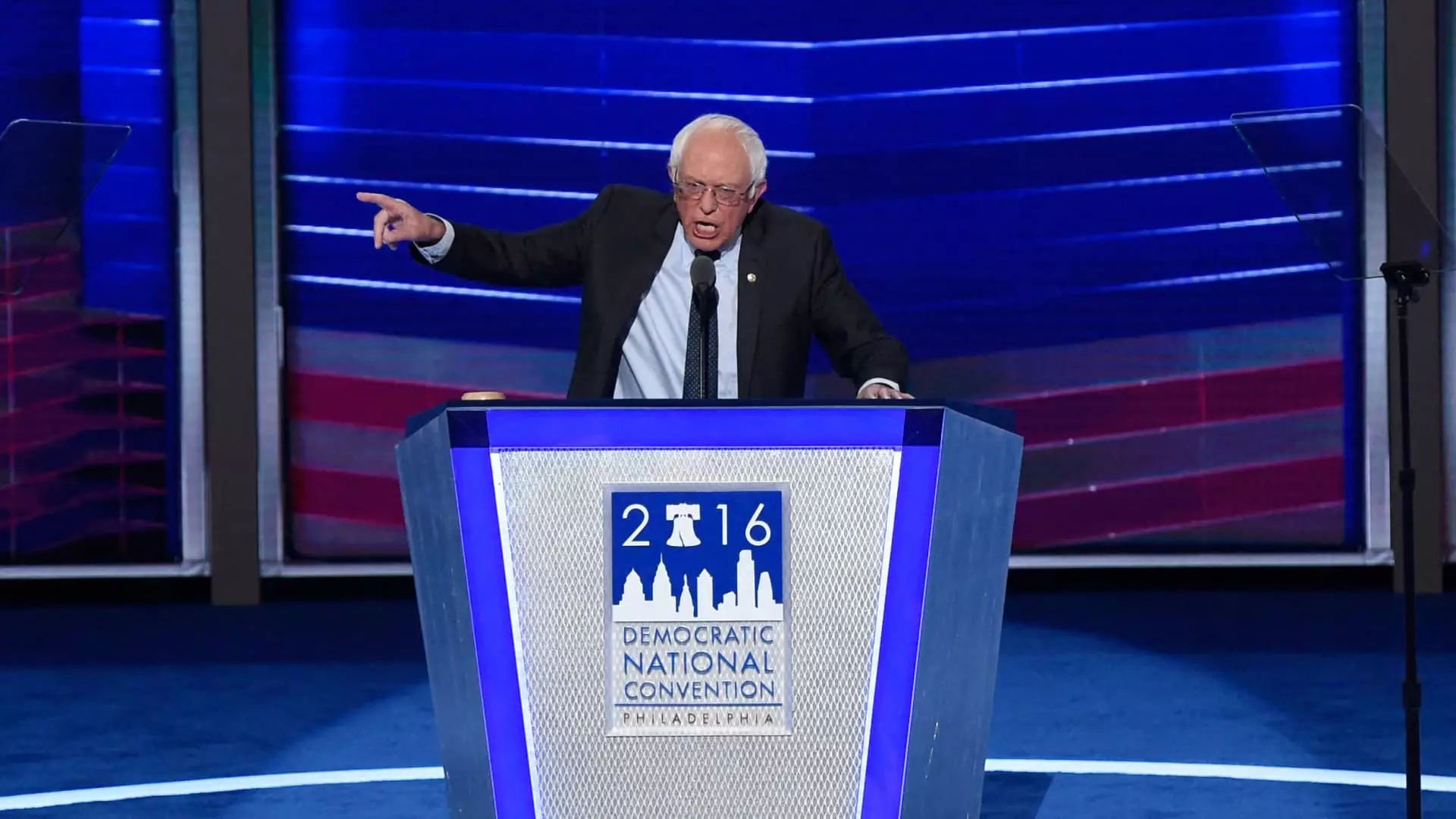Senator Bernie Sanders of Vermont utilized his primetime appearance at the Democratic National Convention to emphasize his policy priorities. One significant point of difference between Sanders and Vice President Kamala Harris is universal healthcare. Sanders reiterated his longstanding support for a Medicare for All program, stating that healthcare should be a right for all people, not a privilege. Despite knowing that Harris does not share his view on this issue, Sanders boldly proclaimed, “I think I’m right and they’re wrong.” This unapologetic stance showcases Sanders’ commitment to his principles, even if they diverge from the official party platform.
Another key theme of Sanders’ speech was his condemnation of big money in politics. Despite the fact that Harris has received support from billionaire donors, Sanders called for a system where billionaires from both parties are unable to influence elections. His denunciation of corporate monopolies and their impact on working people was a direct challenge to the status quo. By addressing these contentious issues, Sanders made it clear that he was not simply there to endorse Harris but to champion causes that he believes are vital to the future of the country.
Throughout his speech, Sanders broke an unwritten rule of presidential conventions by not solely focusing on praising the party’s nominee. While he did express support for Harris in her election fight against former President Donald Trump, Sanders did not hesitate to highlight areas of disagreement with the vice president. This approach runs counter to the usual pattern of convention speeches, where speakers are expected to rally behind the nominee wholeheartedly. Sanders’ willingness to diverge from this tradition underscores his unwavering commitment to his principles, even at the risk of creating some tension within the party.
Despite his differences with Harris, Sanders remained steadfast in his support for President Joe Biden. Sanders expressed his belief that Biden could have carried out a second term, a view that sets him apart from many party leaders. Even after Biden’s less-than-stellar debate performance, Sanders remained loyal to the president. His nuanced position on Harris can be seen as a way to provide balance within the party, showcasing varying perspectives and ideologies rather than presenting a monolithic front.
Sanders’ decision to emphasize the distinctions between himself and Harris may actually benefit the vice president in the long run. As Harris seeks to appeal to moderate and undecided voters, Sanders’ more progressive positions can serve as a counterbalance to perceptions of her as too liberal or progressive. By highlighting the ideological diversity within the Democratic Party, Sanders offers a reminder that there are different voices and perspectives at play. This approach could help Harris broaden her appeal and connect with a wider range of voters, especially in battleground states.
Senator Bernie Sanders’ address at the Democratic National Convention was a bold statement of his priorities and principles. By asserting his stance on universal healthcare, denouncing big money in politics, and highlighting his differences with Vice President Kamala Harris, Sanders demonstrated his unwavering commitment to his beliefs. While unconventional in his approach, Sanders’ willingness to challenge norms and present a nuanced view of the party’s positions may ultimately benefit the Democratic Party as it navigates a complex political landscape.


Leave a Reply